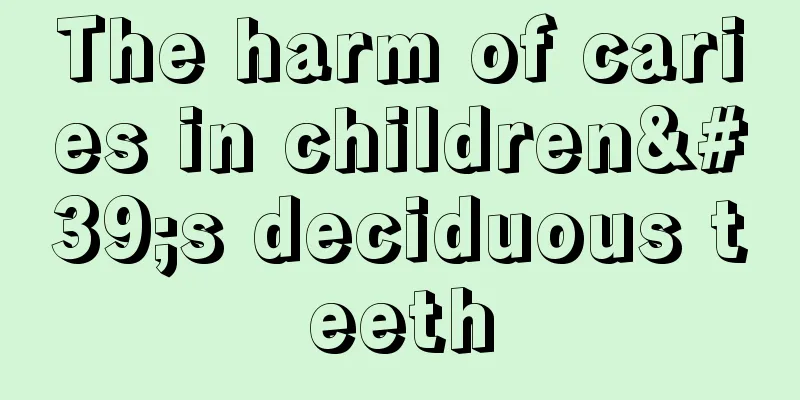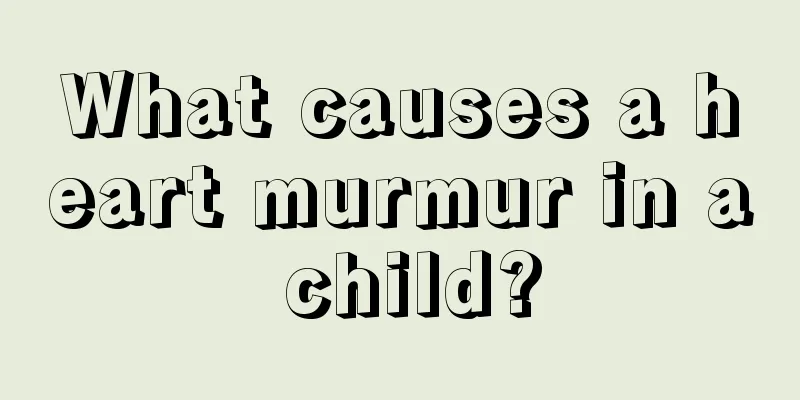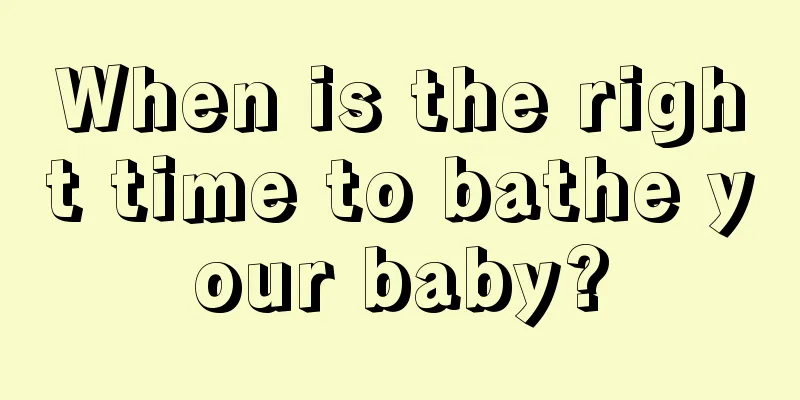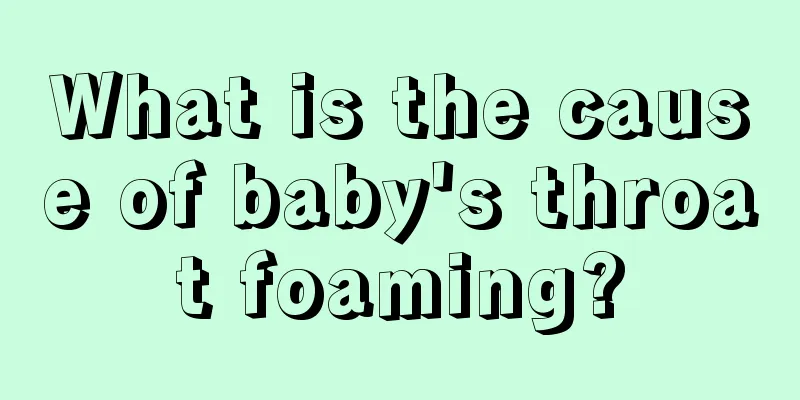What are the symptoms of calcium deficiency in children? It might be like this!

|
Many parents are very afraid that their children will be calcium deficient, because calcium deficiency will affect the development of children's bones. Children with long-term calcium deficiency will have problems with their height, so many parents will give their children some calcium supplements. In fact, people's living standards are not bad now, and children rarely have calcium deficiency problems, but if a child shows the following symptoms, calcium deficiency may be the factor. 10 symptoms that your baby may be calcium deficient 1. Poor mental state Calcium deficiency in babies may also manifest as poor mental state, loss of appetite, lack of interest in the surrounding environment, convulsions, mental retardation, decreased immune function, etc. 2. Beaded rib cartilage hyperplasia When newborns lack calcium, the cartilage of each rib proliferates and connects like beads, often compressing the lungs, making it difficult for the newborns to breathe and making them prone to bronchitis and pneumonia. 3. Muscle and tendon relaxation If calcium deficiency is severe, the abdominal wall muscles will lead to relaxation of the intestinal wall muscles, which may cause gas accumulation in the intestinal cavity and form a swollen abdomen like a frog's belly. If the tendons of the spine are loose, hunchback, pigeon chest, and sternum pain may occur. 4. Growth retardation, late learning to walk, bone and joint deformities Most children who are calcium deficient learn to walk at around one year old, or they may have "X" shaped legs or "O" shaped legs due to soft bones, loose and weak muscles, and leg bone pain. 5. Delayed closure of the anterior fontanelle The anterior fontanelle usually closes at the age of 1 to 1.5 years. Babies with calcium deficiency often still do not close after 1 and a half years old, resulting in a square head. 6. Baldness circle on the pillow Babies who are calcium deficient are prone to sweating, and usually the hair on the back of their head is worn away, forming baldness on the back of their head. Baldness on the occipital area may partially reflect calcium deficiency, but it is not an absolute condition. 7. Late eruption and uneven tooth arrangement Some babies still have no teeth when they are one and a half years old, or their teeth are underdeveloped, malocclusion is incorrect, the teeth are uneven, loose, or fall out prematurely. 8. Abnormal temperament Babies who lack calcium will have strange tempers and often show symptoms such as irritability, crying, and restlessness, making them difficult to look after. 9. Night sweats The head sweats profusely after falling asleep, and the sweating is more obvious after crying. 10. Difficulty falling asleep and restless sleep Night terrors and crying at night are signs of calcium deficiency in babies. Newborns who are calcium deficient often wake up suddenly at night and cry incessantly. |
<<: What food is best for children with cough and wheezing?
>>: What are the solutions for children's long-term cough?
Recommend
Can children eat beef when they have a fever?
If we talk about what disease is the most common ...
Can children drink red dates and wolfberry tea?
One of the most obvious characteristics of modern...
What should I do if my child has stomach wind? These methods to cope
If a child has wind in his stomach, parents must ...
How to treat eczema in a 3-year-old child?
In general, eczema is a minor illness and not a s...
Newborn baby's face turns purple
Newborns are a very vulnerable group and need con...
Children's vision development standards and the best time to check
Nowadays, there are many people with myopia, espe...
Parents must know: 8 family education issues determine the life of children
Today, what needs to change the most are parents ...
Causes of high red blood cell count in children
If a child's red blood cell count is high, pa...
What to do if children cough during the day
Coughing is common in life, but many people may n...
What is the best treatment for eczema in children?
Eczema can be said to be the most common skin dis...
Small particles on the child's arm
Children's skin is relatively tender and easi...
Why does my baby sweat a lot when sleeping at night?
If the baby has any abnormal physical condition, ...
What should children pay attention to when supplementing calcium in spring
Spring is not only a season when all things come ...
Red patches on baby's body
Babies have limited body resistance and their ski...
What are the methods for children to maintain health in spring?
There is a big temperature difference between mor...









